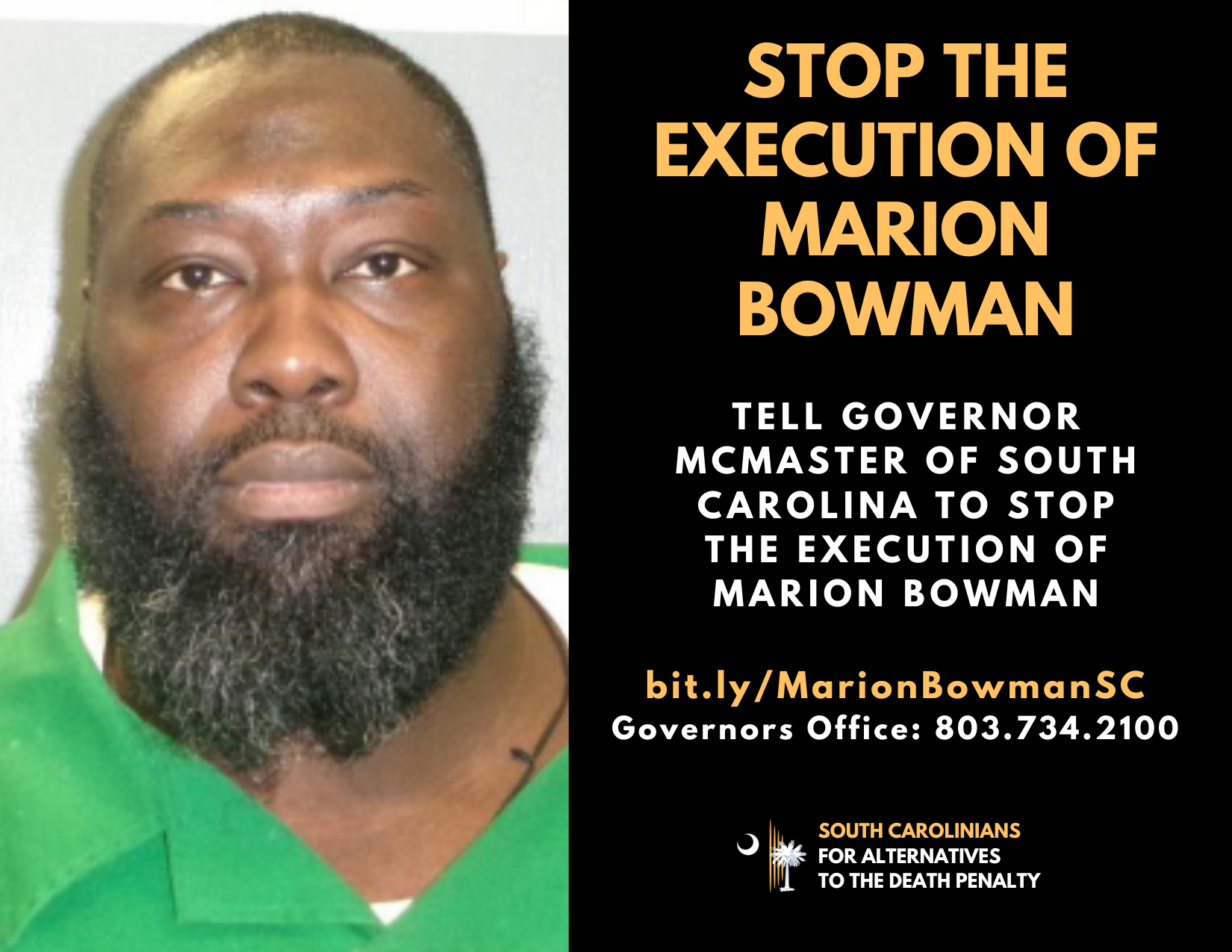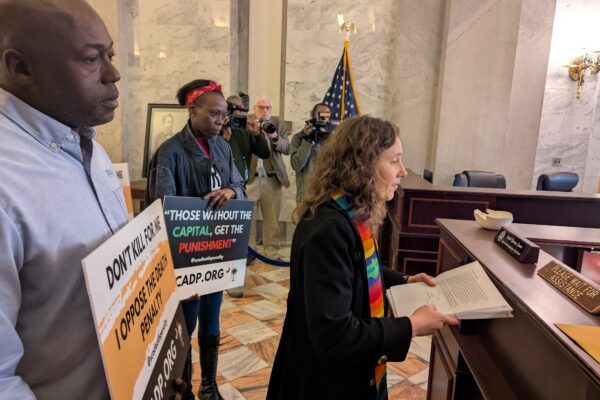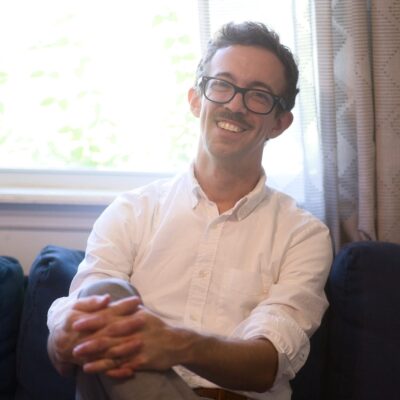On Thursday, January 30, the ACLU of South Carolina joined South Carolinians for Alternatives to the Death Penalty in delivering thousands of petition signatures to Governor Henry McMaster's office. The petition asks the governor to stop the execution of Marion Bowman Jr., who is sentenced to be killed by lethal injection on the evening of January 31.
Communications Director Paul Bowers delivered the following comments at a lectern in the lower lobby of the State House:
250130marion-bowman-petition-comment.mp3
Today we're delivering petitions to Governor Henry McMaster at his office, so my comments are directed to the governor.
Governor McMaster, I ask you to consider first liberty. We hear a lot of talk in this building about limited government and its virtues. But government is never more unlimited than at the point where it takes a life. The point where a needle enters a person's vein, delivering lethal poison; the point where electrodes meet skin; the point where a bullet pierces someone's chest cavity — that is the point of unlimited government. That is the point where the state monopoly on violence reaches one of its darkest conclusions.
Governor McMaster, I ask you to consider justice. Real justice, not revenge. We know that the death penalty is arbitrary and discriminatory in its application. It is no kind of justice. The death penalty is applied disproportionately to Black defendants and to defendants who are accused of killing white victims. We know this. It is no kind of justice. It is a mockery of justice.
Governor McMaster, I ask you to consider light. In a representative democracy, the state should do its work in the light of day. By light, we are sometimes talking about transparency. The death penalty, of all things, should be done with utmost transparency, but it is not. We have gone from executions happening in broad daylight outdoors where all can see, to today where executions take place in a small chamber in the evening with few witnesses.
The state should do its work in the light of day, and that includes the mechanisms, the medicines, the implements of death that are being used in the death penalty. Instead, the governor signed a law in 2023 that limits public access to that information. We cannot fully understand what the state is doing in our name.
Governor McMaster, I ask you to consider morality. Is it moral to take life for life? There is the morality of what we are doing to the people we are seeking to kill. And then there is the concept of moral injury. It is felt first by the people in the execution chamber who are carrying out the execution, but it radiates out to those who have the power to stop an execution but do not. And it is even felt by all of us in South Carolina who go to our beds at night on the day of an execution, turn out our bedside lamp, and reflect on the fact that our government has killed someone in our name.
Finally, Governor McMaster, I ask you to consider Marion Bowman, the man that the state is preparing to kill tomorrow. A man who maintains his innocence of this capital crime. A man who has no physical evidence tying him to the crime. A man who did not receive a fair day in court. A changed man who has done his best to change himself in a dehumanizing environment. A man who has retained his humanity despite it all.
Governor McMaster, I ask you again to consider liberty, justice, light, morality, and the man himself — Marion Bowman.



